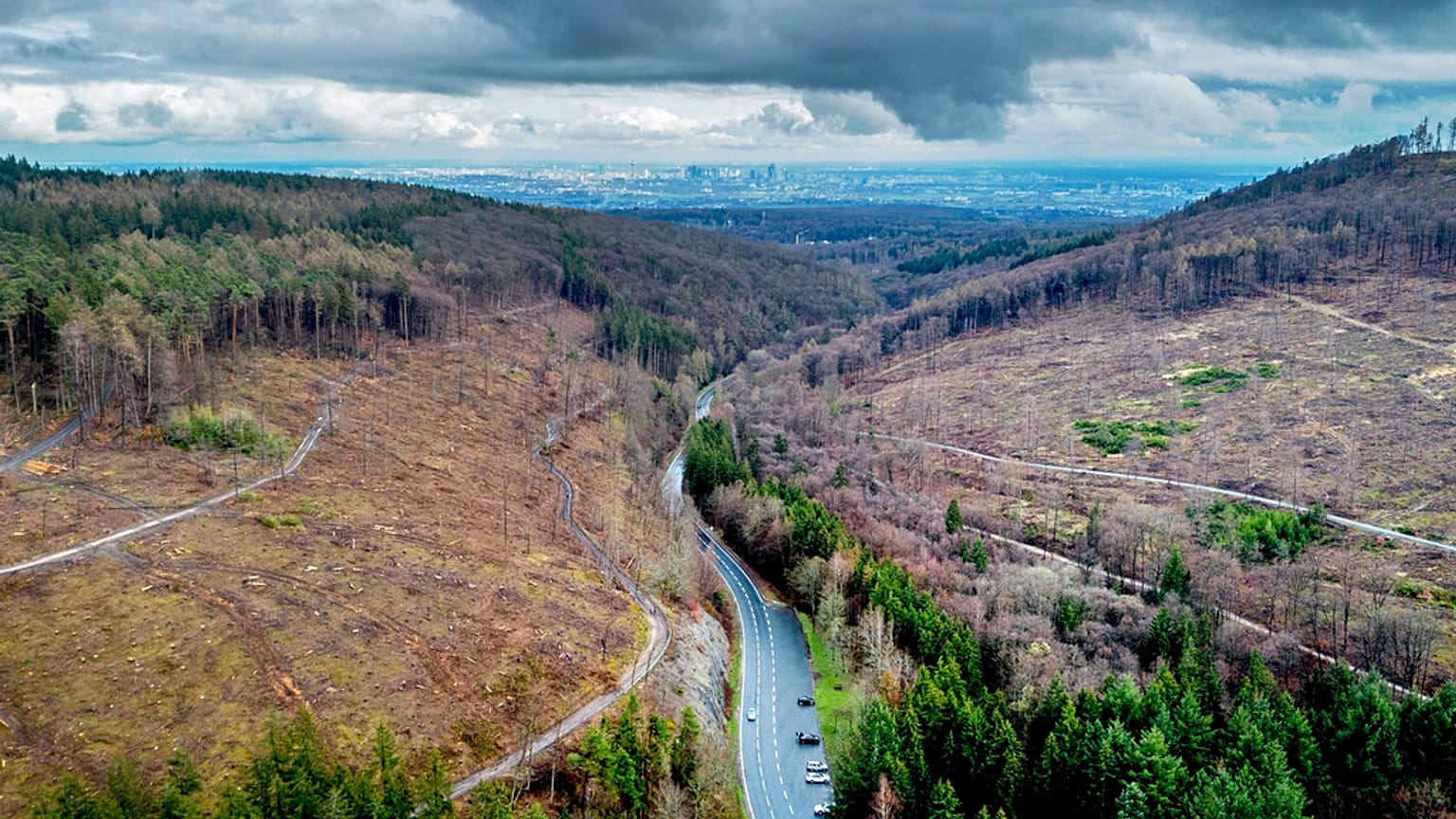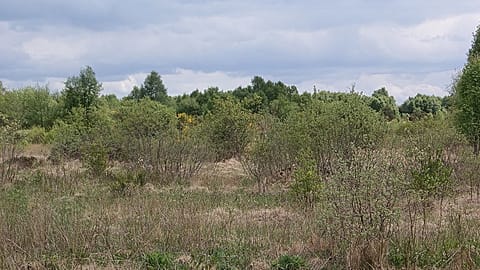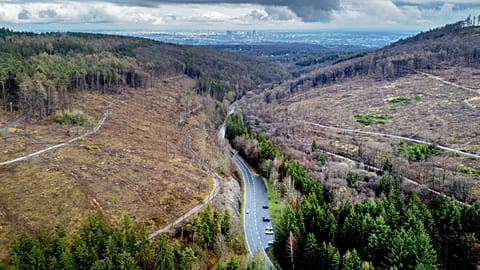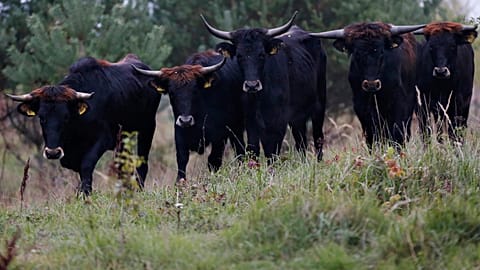Despite latest efforts from center-right lawmakers to block the bill, Socialists, Greens and The Left are eager to see the adoption of the nature restoration.
The European Parliament will vote next week on legislation intended to reverse decades of ecosystem degradation, but right-wing groups want to renege on a recent political agreement with EU governments and reject the law out of hand instead of giving it the expected rubber stamp.
 ADVERTISEMENT
ADVERTISEMENT
 ADVERTISEMENT
ADVERTISEMENT
The Nature Restoration Law, provisionally agreed with the EU Council last November after months of highly politicised negotiations, requires action to improve biodiversity across 20% of all EU land and sea by 2030 and the incremental restoration of all degraded ecosystems by 2050, alongside other measures such as opening up 25,000km of free-flowing rivers and planting at least three billion new trees.
Yet after a considerable watering down from the European Commission’s proposal, announced in June 2022, the European Conservatives and Reformists (ECR) and the Identity and Democracy (ID) groups in parliament both introduced last-minute amendments to the law on Tuesday (February 21) calling on the parliament to reject the law as a whole.
The ECR has also tabled a set of six amendments that would greatly water down the legislation, such as limiting its effect to protected Natura 2000 areas, EU special conservation zones. The adoption of any of the amendments would mean re-opening talks with member states, effectively pushing the adoption of the bill into the next mandate after the EU elections in June.
“Given the social unrest, it would be unwise to rush through this legislation just before the elections,” read one of the amendments pushed by the ECR and ID calling for a full rejection of the bill.
MEP Sara Cerdas (Portugal/S&D), said the nature restoration has been hugely politicised since the onset of the negotiations but that her political party has always advocated for negotiations even if the final agreement kept “some conservative lines” and “some part of the text was completely suppressed”.
“Still, we don't know what the result will be and only Tuesday [February 27] will we be able to say whether or not we have a law to restore our nature,” Cerdas told Euronews.
Lawmaker Jutta Paulus (Germany/Greens) sees the ECR’s and ID’s’ latest move as as an “attempt to stop the legislative procedure by eurosceptics” but was hopeful the “pro-European groups” in the parliament will maintain the position reached in previous inter-institutional deals.
Originally, the nature restoration bill faced strong opposition from the centre-right European People’s Party (EPP) which claimed it would devastate European agriculture, forestry and fisheries. After several setbacks at committee level within the parliament, the plenary vote’s result last July — 336 votes in favour, 300 votes against — was a clear reflection of the divide among lawmakers across the political spectrum.
MEP Bert-Jan Ruissen (The Netherlands/ECR), shadow rapporteur on the nature restoration bill in the Committee on Agriculture and Fisheries expressed dissatisfaction with the July vote saying “too much land was reserved for nature restoration” to the detriment of food production, housing, transport and energy transition.
“Fortunately, the original text has been weakened by amendments and member states have been given a little more discretion. But the text is still too rigid,” said Ruissen.
The EPP expressed similar concerns saying it’s “irresponsible to reduce food production” during a period of inflation “driven by higher food prices”.
“In the Nature Restoration Law, the commission proposes reducing productive land, forest and sea areas by a staggering 10%. Even the commission admitted this will reduce food production. We refuse to accept this,” read an EPP press statement.
The proposed law entails a number of concrete targets — biodiversity should be restored by extending natural habitats on a large scale and bringing back species, including tackling the decline of pollinator populations and reviving river-flows. There are also concrete targets for forest, marine, urban and agricultural ecosystems.
Ahead of the plenary vote next week, German lawmaker Terry Reintke, co-president of the Greens, said the nature restoration is a “key file” in the Green Deal package and a “moment of truth” for the EPP.
“If her [Commission’s president Ursula von der Leyen] own party goes against this file [Nature Restoration Law], it not only continues to damage its own leading candidate, it also proves that the leader, Manfred Weber, has no discipline over his own EPP group," Reintke told Euronews.
MEP Manon Aubry (French/The Left) said the EPP’s alliance with the far-right to kill environmental legislation is a “real disaster”.
"While the planet is burning, they prefer to protect the interests of lobbies and multinationals. The Left will continue to fight to prevent this from happening, as we did last November when we managed to save the text, despite it having been severely weakened by the right-wing," Aubry told Euronews.
However, the Irish Natura & Hill Farmers Association (INHFA) said they have “major concerns” with some of the details outlined in the nature restoration bill, notably that its impact will be felt mostly by farmers on peat soils both on lowland areas and on hills.
“The law also has the potential to undermine the Common Agricultural Policy (CAP) supports and farm produce from land targeted under it,” Vincent Roddy, INHFA’s president told Euronews.
While recognising climate change as a real threat, MEP Luke Ming Flanagan (Ireland/Independent) is openly opposing the nature restoration bill claiming it will hit hard farmers doing business in the poorer regions.
“There will be no transition unless it is a just transition (…) The intensive farmers will continue to get away with poisoning our water supply while sustainable farmers in the west of Ireland will be required to do heavy lifting with long-term implications for the value of their assets,” said Flanagan.
Sabien Leemans, senior biodiversity policy officer at the NGO WWF said the potential rejection of the nature restoration bill is not going to solve the problems faced by farmers and noted that even a degraded proposal would have an impact on restoring nature at sea and on land.
Sergiy Moroz, policy manager for water and biodiversity at the European Environmental Bureau (EEB) also expressed disappointment over the reduced level of ambition in the final law, but urged the co-legislators to “proceed with the adoption” and “not to delay the much-needed restoration work that will help the EU fight the climate and nature crisis”.
The vote on the law is due for next Tuesday (February 27) during a plenary vote in the European Parliament in Strasbourg.


















